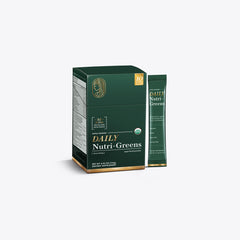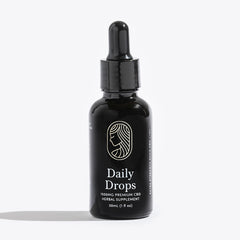If events occurring all over the globe feel especially overwhelming and stressful right now, you’re not alone. Even months after the World Health Organization (WHO) officially characterized the spread of the COVID-19 viral disease (coronavirus) as a pandemic, fears related to the spread of the novel coronavirus continue to impact Americans’ mental health. Vaile Wright, director of clinical research and quality at the American Psychological Association, told STAT, “We are seeing increasing levels of anxiety over a relatively short period of time.”
While it can feel like there are few silver linings to grab onto, consider that this moment could serve as an opportunity to bolster your stress response. After all, whether you’re stressed by a public health crisis or the rigors of everyday life, you’ll do well to cultivate a sense of calm. Not to mention that doing your best to stay centered can keep your immune system firing on all cylinders, as well. One way to do all of the aforementioned: tapping the benefits of cannabidiol (CBD). Which can combat the negative effects of chronic stress and improve overall wellness.
Here is everything you need to know about the effect of stress on your body, how it takes a toll on your body's balance, and the wellness practices that can help you get back in balance.

How Stress Takes a Toll on the Body’s Delicate Balance
You’ve likely heard that stress can trigger a flurry of negative effects in the body, such as the release of a surge of hormones, like adrenaline (which bumps up your heart rate and blood pressure to boost your energy supply) and cortisol (the stress hormone that alters or suppresses various systems in the body so it can switch into full-on "fight-or-flight" mode). But the endocannabinoid system (ECS) also comes into play. “The job of this system is to maintain balance across all your body’s other systems, including your sleep, mood, hormones, pain, inflammation, and immune response, among others,” explains Maia Reed, Senior Director of Member Education, Equilibria. This system includes a series of receptors located all throughout the body—from your brain to your central nervous system and your immune system. The body naturally creates compounds called endocannabinoids, which interact with the ECS’ receptors to turn them on and off, maintaining balance (or homeostasis) across your systems. But chronic levels of stress can bump up production of stress enzymes (like fatty-acid amide hydrolase, or FAAH) that deplete endocannabinoids and throw a wrench in that process. “Our bodies are built for short term bursts of stress. Like running for our lives from a tiger, not the day-to-day stresses we experience today,” explains Reed. Two endocannabinoids we know are affected in a stress-fueled attack on the ECS: 2-AG and anandamide (nicknamed the "bliss" molecule, as it’s produced when you work up a satisfying sweat at the gym or eat chocolate.) Research has linked healthy stores of 2-AG and anandamide to improved stress-resilience and reduced anxiety. Now that you know how stress takes a toll on the body’s delicate balance, here's how CBD can help.How CBD Can Help
Chronic stress can handicap the ECS, compromising the balance of all of your body’s other systems. The good news: Supplementing with CBD, a phytocannabinoid, can serve to get you back on track.“On a molecular level, these phytocannabinoids are very similar to what our bodies already naturally produce,” explains Reed. “So, they get in there and start turning those receptors on and off. And ultimately, allow your own body to stop constantly overproducing stress enzymes. Which in turn, allows your own body to produce its own endocannabinoids again.”The good news: Supplementing with CBD, a phytocannabinoid, can serve to get you back on track.
Taking CBD to Beat Stress & Boost Balance
CBD can be used on an as-needed basis; in fact, Reed often recommends taking an episodic dose during times of high-stress. But your best bet is to use it every day, as you would vitamins or certain medications. “This is because CBD, like all cannabinoids, builds up in the body over time,” says Reed. “A daily dose can help maintain sustained levels in your system and promote a more effective ECS. With continued use, you should get to a point where you’re taking CBD as a precautionary measure. Not a reactionary one.”The Downstream Effect
By strengthening and improving the function of your ECS, and maintaining homeostasis in the body, you’ll naturally enjoy better sleep, reduced inflammation, a better functioning digestive system and immune system. After all, these systems don’t function independently of one another. Research has shown that improved sleep enhances your feeling of well-being. And when you eat clean, your gut is healthy, which can elevate your mood and benefit your immune system. “It's all interconnected,” points out Reed. For that reason, you can also cultivate calm and support your overall sense of well-being with certain everyday lifestyle measures:Focus on eating health- and mood-boosting foods.
Consider upping your intake of omega-3 PUFAs (found in oily fish, walnuts, flax and hemp seeds), which stave off dementia and depression while supporting the ECS.Get your workout in.
In a 2019 study published in Medicine & Science in Sports & Exercise, just 30 minutes of moderate intensity cycling was linked to increased anandamide levels and decreased depressive feelings in women.Maintain proper sleep hygiene.
Equilibria members often struggle with this one. But research shows that satisfying sleep “brings systems back online and brings anxiety levels back to normal,” Eti Ben-Simon, Ph.D., of the Center for Human Sleep Science at the University of California, Berkeley, tells Psychology Today.Meditate.
Fire up that meditation or mindfulness app. As research suggests the practice may help people manage symptoms of anxiety and depression, among other conditions. Ultimately, as Reed notes, “It doesn't have to be all or nothing. Small steps can have a big impact on health”. And that impact can go far to keeping you grounded and feeling well.




